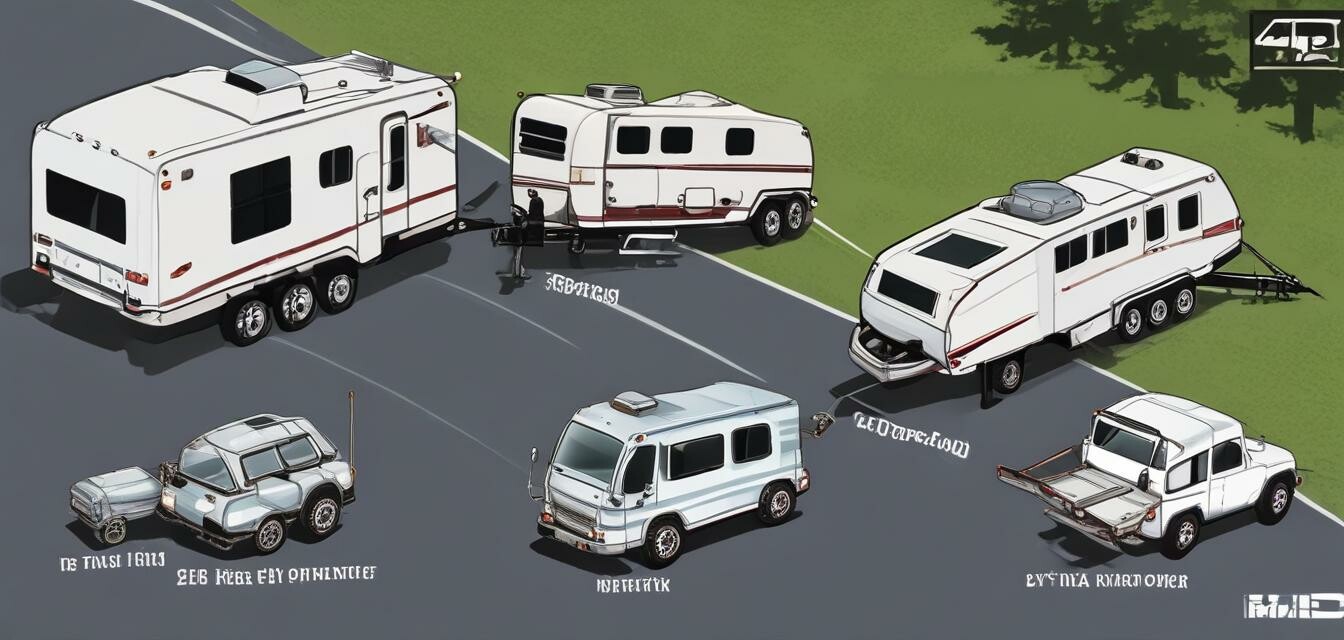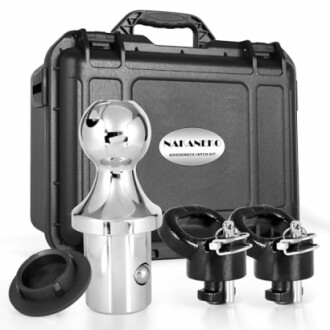
Understanding Trailer Hitch Ratings
If you're planning to tow a trailer, understanding trailer hitch ratings is crucial for ensuring safety and compliance. This article breaks down the various types of trailer hitch ratings, what they mean, and how to choose the right hitch for your needs.
Key Takeaways
- Trailer hitch ratings are essential for safe towing.
- Understand the various classifications, including GTW, TW, and more.
- Choose a hitch that meets or exceeds the demands of your towing needs.
- Regularly check and maintain your hitch for optimal performance.
What are Trailer Hitch Ratings?
Trailer hitch ratings indicate the maximum weight a hitch can safely tow. These ratings ensure that the towing vehicle, trailer, and hitch work together safely, preventing accidents and damage.
Types of Ratings
The common types of ratings you should know include:
- Gross Trailer Weight (GTW): The total weight of the trailer and its cargo.
- Tongue Weight (TW): The downward force the trailer applies on the hitch, usually 10-15% of the GTW.
- Weight Carrying Capacity (WCC): The maximum weight that the hitch can carry without additional equipment.
- Weight Distribution (WD) Rating: Used when a weight distribution system is employed to balance the load across the axles.
Why Ratings Matter
Knowing the correct ratings for your trailer hitch helps in choosing the right hitch based on your vehicle's capabilities and your towing needs. Using a hitch outside its rating can lead to accidents and damage both to your vehicle and the trailer.
How to Determine Your Towing Needs
Consider the following factors:
- Type of Trailer: Know the weight of the trailer you'll be towing. Check the manufacturer's specifications.
- Load Distribution: Ensure the weight is distributed evenly across the trailer.
- Vehicle Specifications: Check your vehicle's manual for its maximum towing capacity.
- Safety Features: Look for hitches that include safety chains and locking mechanisms.
Understanding Hitch Classes
Hitches are categorized into different classes based on their towing capacity:
| Hitch Class | Towing Capacity (GTW) | Tongue Weight (TW) |
|---|---|---|
| Class I | Up to 2,000 lbs | Up to 200 lbs |
| Class II | Up to 3,500 lbs | Up to 300 lbs |
| Class III | Up to 8,000 lbs | Up to 800 lbs |
| Class IV | Up to 10,000 lbs | Up to 1,000 lbs |
| Class V | Over 10,000 lbs | Over 1,000 lbs |
Using the Right Accessories
To ensure safe towing, consider these accessories:
- Weight Distribution Hitches: Helps to distribute weight across the tow vehicle and trailer.
- Brake Controllers: Essential for trailers with electric brakes.
- Safety Chains: Provides an additional layer of security for your trailer.
- Gooseneck Hitches: Ideal for larger trailers; often have higher capacity ratings.
Product Spotlight: 60618 Puck System Gooseneck Hitch Kit
60618 Puck System Gooseneck Hitch Kit
A robust gooseneck hitch kit designed for heavy-duty towing. Perfect for Ram 2500 models with a towing capacity of 30,000 lbs.
Learn MoreMaintaining Your Hitch
Regular maintenance is critical for safety. Here are some tips:
- Inspect the hitch for wear and tear before each use.
- Clean the receiver tube to prevent rust.
- Ensure all connections and fasteners are secure.
- Lubricate moving parts when necessary.
Final Thoughts
Understanding trailer hitch ratings is essential for safe and effective towing. Always choose a hitch that matches your vehicle and trailer specifications. With the right equipment, you can safely enjoy your adventures without worry.
Tips for Beginners
- Always check your vehicle's manual for maximum towing capacity.
- Keep a record of your hitch specifications for easy reference.
- Consult with professionals if you are unsure about your setup.

